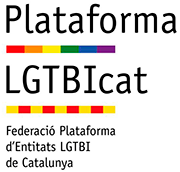Herdene Vitória
With the popularization of social media, many LGBTQIA+ people no longer need to wait for opportunities on television or in the newspapers to make their voices public (as was the case until the beginning of the first decade of this 21st century). Since smartphones and high-speed internet have become more accessible, LGBTQIA+ people around the world have been empowered: through social media, they can speak for themselves, say what they think, when they want, in the way that they prefer, express their opinions and fight even more for their rights.
In his book "Can the Subaltern Speak?" and in other publications, the writer Gayatri C. Spivak, reflects on the problems that marginalized populations (poor women, black people, colonized or who do not follow heteronormativity and cispatriarchy) have historically faced to speak for themselves.
This new reality has decreased the communicative verticality (when only few people had opportunities to speak and many voices were silenced) and has increased the perspective of horizontality, that is, of a greater democratization of social and communication rights, which are those that they refer to being able to speak, hear, comment, dialogue and participate in political life without the mediation of other people or the interference of traditional media.
Obviously, we cannot forget that, although social networks have become popular in many parts of the world, internet access and the so-called “digital democratization” have not yet arrived for many people in the poorest countries. In addition, in many countries, such as China, Russia, North Korea and Indonesia (among others), there are very rigid controls on the use of the internet and, of course, on what may or may not be disseminated and received through it. Thus, in countries where women are unfortunately oppressed by governments and homosexuality and transsexuality are still criminalized, for example, we cannot imagine this empowerment of the LGBTQIA + community through social networks, as occurs in other countries where there is freedom and democracy.
In the virtual world, we perceive the unspoken rule that to call themselves an “influencer”, anyone has to achieve at least “10k” (10,000 followers). In other words, any person can feel “influencer”, but not all will be recognized as such. When we reflect on LGBTQIA + influencers, some questions seem important to us and we will try to answer them in a simple way:
1 - Who do they influence? Only other LGBTQIA+ people? We believe that their audiences are varied and include not only LGBTQIA+ people, but anyone who is open to dialogue, plurality of ideas and the strengthening of democratic values, regardless of their sexual orientations, gender identities and gender expressions. And we cannot fail to mention that, unfortunately, conservative people who reproduce machismo follow the pages and profiles to offend and defame those people in the form of the famous 'haters' - people who have hostile behavior with teasing, a disposition for aggression and to attack those who are different from their ideals (religion, place of origin and in this case, sexual orientation).
2 - To what extent do they influence their followers? It is difficult to know exactly, because each LGBTQIA+ influencer has his personality, his life trajectory, his audience and his themes within the universe of sexual and gender diversity. We can, for example, cite the Spanish Instagram profile Oh! Mamiblue, managed by chef Verónica Sánchez. She not only shares healthy and vegan cooking recipes, with the aim of caring for the environment and encouraging conscious consumption, she also shows us her daily life with her partner Jana Victoria and her son Alex. Married since 2012, they are a lesbian couple, a beautiful family that, after numerous attacks by lesbophobic haters, decided to create the project called #yosoLOVEoamor. They transformed all the criticism and hateful messages into an idea full of love and creativity, and developed their sustainable clothing brand for children and adults named #yosoLOVEoamor.
3 - What are your main goals and struggles? The end of stereotypes, of prejudices originating from the lack of knowledge and the struggles against sexual discrimination based on gender. Furthermore, a growing part of LGBTQIA+ influencers work on the issue of intersectionality, that is, the multiple discriminations that a person can suffer due to the convergence of LGBTQIA+phobia with racism, sexism, misogyny, classism, xenophobia, etc. .
An example of an LGBTQIA+ influencer is Brazilian singer-songwriter Liniker. As a black and trans person, she always tries to show us on her Instagram profile the brands that care about the self-esteem and beauty of black people. One of her publications, with more than 83 thousand likes, was a thank you to the YouTube Music platform for showing her work on the large advertising screens in Times Square in New York. According to Liniker, YouTube manages to "empower the voices of black and trans artists, giving new possibilities to her work."
4 - Have LGBTQIA+ influencers created new forms of activism? In our opinion, yes, they have created. Well, they invigorated the strategies that already existed, they have created new ones and through the dynamic mechanisms of social networks, they dialogue better with the so-called “digital natives”, that is, the members of the “Y” generations (people born between 1981 and 1996 ) and “Z” (people who were born after 1996, also named “Centennials”). In other words, we could consider that LGBTQIA+ influencers are more connected with the different generations and that potentiates their voices and audiences. An example of broadening the voice is Dulceida, the bisexual blogger, youtuber and instagramer, whose real name is Aida Doménech. This Catalan communicator is focused, above all, on fashion, among other topics. In 2015, she shared her video "My Sexual Orientation" in which she opened up with her followers about how she felt at the time regarding her bisexuality and her first relationship with a woman. The video reached 3.7 million views. Her followers began to grow, not only people interested in her fashion TAGs, but also in her private life with her girlfriend and her dating routines. They became a reference for many young children who were reflected in them and in their way of feeling.
In addition to the influencers mentioned above, we find many others around the world, who launch their messages of love and freedom. In Argentina, we find the influencers Mariana Genesio Peña, Leti Siciliani, Carolina Unrein, Louis Yupanqui, Luis Novaresio, Haluami, Asia Argenta, Valentina Godfrid and Sofía Elliot.
In Brazil, we can follow Giovanna Heliodoro, Liniker, Brunessa Cussy - Brunessão, Stefan Costa, Pabllo Vittar, Giorgia Narciso, Cleyton Bitencourt, Bernardo Gonzales, Lucca Najar or Raquel Mc Dellacroix on the networks.
From Colombia, there is Mara Cifuentes and the couple Calle Y Poché - “From best friends to girlfriends” (YouTube).
And from Mexico, Victoria Volkova, Rox Quintana and Sury with their channel “QueFishTV” (YouTube), among others.
And we cannot forget that, with humor, people can also be sensitized, as is the case with the comic stand-up comedian from Madrid, illustrator and youtuber Elsa Ruiz, who through her videos reminds us that it is not a need, but a civil right to respect sexual and gender diversity: the identities of LGBTQIA+ people.
The funny comedian who has suddenly achieved his success in Brazil, speaking in a funny way that “the life of the believer and the artist is not easy”, is Wenderson Cobra. The showman appears in the short videos of him with his children asking for respect for homosexual people in a positive, optimistic and charming way, in their day-to-day lives. He tries to improve people's self-esteem by praising them and always being grateful with life. At this time, he has already conquered 570,000 followers and among them other well-known and respected artists such as the queer singer Pablo Vittar.
In 2019, the “Madrid es noticia” portal published a report on “the most popular LGTBI influencers in Spain” and cited as examples Javier Calvo and Javier Ambrossi (a gay couple), King Jedet (fluid gender), Devermut Marta and Sara (a lesbian couple), Melo Moreno, Dulceida and Alba Paul, Luc Loren and Jonan Wiergo.
In various ways, these LGBTQIA+ influencers seek to convey very important messages for the whole of society, such as the need to find unity in diversity. As long as the differences, be they gender, racial, ethnic, economic and cultural, constitute "problems" to be solved and not possibilities to expand our humanity, we will continue to be extremely poor and suffer the worst type of poverty, which is that marked by the lack of empathy, respect, solidarity and tolerance.
Marcos-de-Araujo-Silva-577x1024.jpg
Marcos de Araújo Silva
PhD in Social Anthropology
Herdene-Vitoria-980x980.jpg
Herdene Vitória
Sociologist




